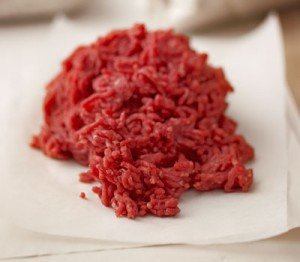As consumer concern over the horsemeat scandal in Europe continues, one UK expert notes the irony that this ‘contamination’ may in fact be improving the quality of meat products.
 The discovery of horsemeat included in beef products in the Europe has spurred a high level meeting of EU leaders and a decisiion to carry out widespread quality of testing of meat products.
The discovery of horsemeat included in beef products in the Europe has spurred a high level meeting of EU leaders and a decisiion to carry out widespread quality of testing of meat products.
Our colleagues at the UK SMC collected the following expert commentary. Feel free to use these quotes in your reporting. If you would like to contact a New Zealand expert, please contact the SMC (04 499 5476; smc@sciencemediacentre.co.nz).
Dr Emma Roe, Lecturer in Human Geography, University of Southampton, said:
“It is no surprise that it is the value ranges of processed meat products that are being identified as containing horse meat. And perhaps no surprise that these are products which should contain beef – a more expensive meat than, say, chicken.
Where has all the beef gone that should be in these products?
“There is a commercial logic to utilising the least-favoured parts of the animal carcass in processed meat products, adding fat and salt to make them edible. The horse meat saga suggests that there is a shortage of beef products at a price suitable for value-range processed meat products, despite the need to find a commercial home for all the parts of the beef carcass. This may be linked to the desinewed meat ban, not considered ‘meat’ enough by the EU. The retailers are pushing down prices to meet the needs of cash-strapped consumers who are dealing with food and fuel bills prices rising. The beef meat for processed products may now just be too expensive, despite it in effect being a waste product from a carcass that produces more desired cuts of meat.
How do we normally dispose of surplus horses?
“Horses are culled when not fit for use anymore and their bodies do need to be disposed of. It appears some of these horses are being sent to meat abattoirs. Perhaps this is a better use for them, and a better death because of meat hygiene and humane slaughter standards than incinerating their bodies for energy? The lack of a market for horse meat in this country may mean that it is higher quality horse meat (rather than the meat that normally ends up in processed meat products from a beef carcass) which is in the lasagnes, burgers etc. – who knows?”
Prof Chris Elliott, Director of the Institute for Global Food Security at Queen’s University Belfast, said:
“What at first seemed to be a small scale meat contamination issue has now turned out to be a complex multi-national problem that cuts across many issues in relation to food security in the UK. It is inevitable that intensive investigations to ascertain how and why the horse meat scandal came about must be performed. It’s likely that further twists and turns will yet be uncovered.
“However, eventually – and the sooner the better – the focus must switch to thinking about how we can truly protect the integrity of all our foodstuffs that we purchase. The last great shake-up of meat supplies came about 20 years ago due to BSE. A generation later and in the wake of some of the impacts of food globalisation starting to emerge the time to rethink things has surely arrived.”
Nigel Horrox, Editor of specialist publication International Meat Topics, said:
“Consumers cannot have cheap food and food that meets more and more requirements – the two are mutually exclusive! The possible number of theoretical contaminants of foods for human consumption is massive and you cannot test every food for every possible contaminant.
“When it comes to contaminants which are not associated with product safety, has the time come when we should simply prove that what should be there is really there – and only if this is found not to be the case to then start looking for that which should not be there?”